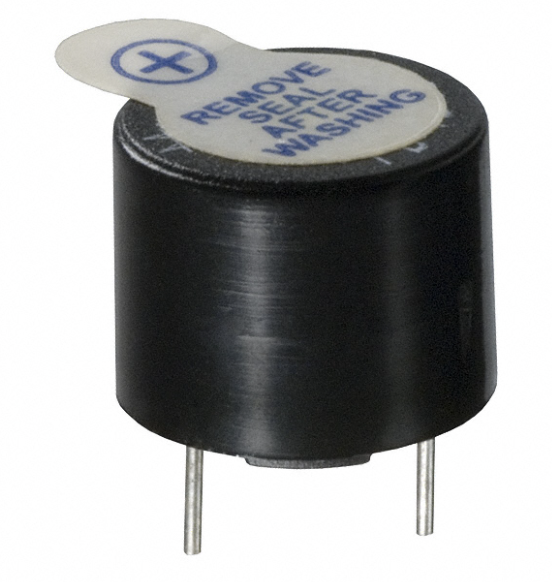Buzzer
Description
A Buzzer is an electroacoustic device that produces sound when an electrical current passes through it. It consists of a diaphragm attached to a coil and a magnet, which interact to create vibrations that result in sound.

Characteristics
- Sound Output: Buzzers can produce a range of sounds from simple beeps to complex tones.
- Voltage Range: Operates within a specific voltage range, typically from a few volts to around 24 volts.
- Current Consumption: The current drawn by a buzzer varies with its design and the sound level.
- Frequency: Some buzzers can emit sound at a fixed frequency, while others can produce different tones.
- Size: Available in various sizes, affecting the volume and pitch of the sound produced.
- Polarity Sensitive: The coil's polarity affects the direction of the diaphragm movement.
Identification Methods
- Visual Inspection: Buzzers have a recognizable shape, often cylindrical or rectangular with a flat diaphragm.
- Polarity Markings: Some buzzers have polarity indicators, such as a '+' sign or different lengths of leads.
- Datasheets: The specifications, including voltage, current, and sound characteristics, are detailed in the datasheet.
Common Applications
- Alarms: In security systems, timers, and other devices to alert users.
- Indicators: To signal the status of electronic devices, such as power on, error states, or confirmation of user input.
- Gaming: In arcade machines and video games for sound effects.
- Automation: In industrial automation systems for signaling process steps or alerts.
- Telecommunications: As a ringer in old-style telephones.
- Accessibility: In assistive devices to provide auditory feedback for visually impaired users.
Usage Tips
- Ensure the voltage and current ratings of the buzzer match the supply voltage and current of the circuit.
- Check polarity when connecting to avoid damage to the buzzer.
- Consider the sound characteristics and select a buzzer that meets the desired tone and volume.
- Mount the buzzer securely to prevent vibrations from affecting other components.
- Use appropriate resistors if necessary to limit current and protect the buzzer.